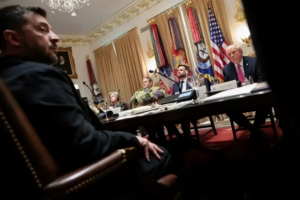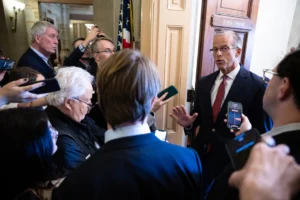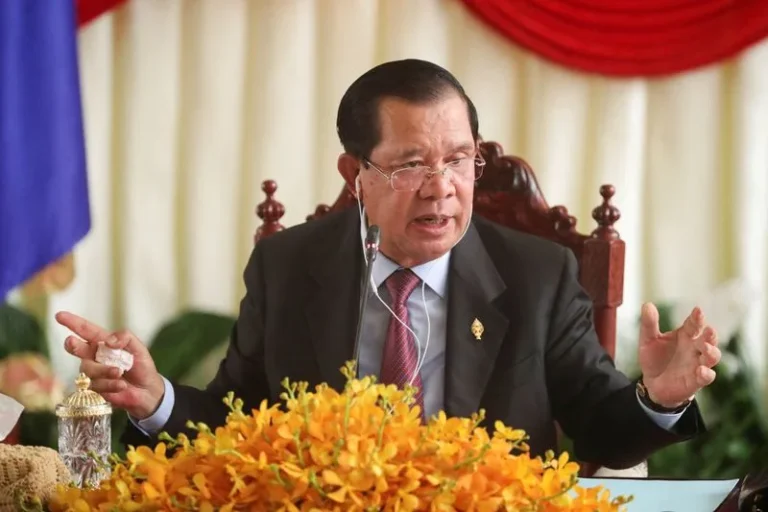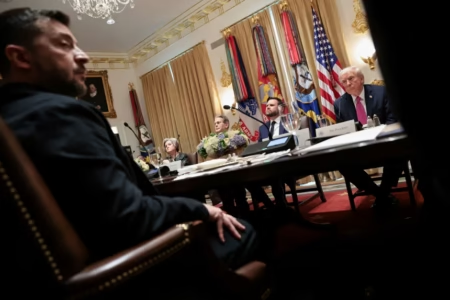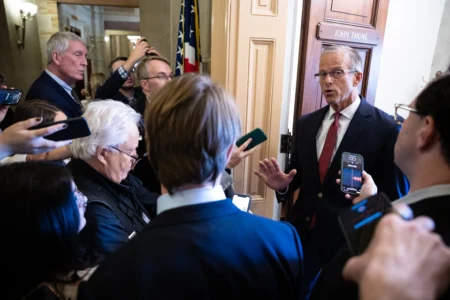Tensions between Cambodia and Thailand turned into a serious border conflict last week. Former Cambodian Prime Minister Hun Sen took a clear lead in managing the situation.
Photos show Hun Sen sitting at a long table with military officers. He is seen studying detailed maps, holding a radio, and with a cup of Starbucks coffee nearby.
Though Hun Sen stepped down as Cambodia’s prime minister in 2023 after almost 40 years in power, he remains influential. He now serves as president of Cambodia’s Senate.
Despite no longer being the country’s leader, Hun Sen played a major role in the events leading to the fiercest fighting between Cambodia and Thailand in over ten years. Three diplomats said he was actively involved throughout the five-day conflict.
The fighting escalated when Cambodian artillery shells hit civilian areas in Thai border provinces. In response, the Thai army directly accused Hun Sen of being behind the attacks. A Thai military statement said the Cambodian government, led by Hun Sen, was responsible for these “appalling attacks.”
Soon after the clashes began, the 72-year-old Hun Sen used Facebook to rally support and criticize Thailand. He shared photos of himself in military uniform and in video calls with soldiers. This helped create the impression that he was directly commanding the troops.
A Cambodia-based diplomat said, “What stands out is how Hun Sen shapes the image of control—wearing the uniform, directing troop movements, and using Facebook to intervene.”
Hun Sen’s role extended beyond public appearances. Lim Menghour, a Cambodian government official, said Hun Sen acted as the main logistics commander for troops at the frontline during the border clashes.
The conflict is the worst between Cambodia and Thailand since 2011. The long dispute centers around the border area near the Preah Vihear temple, a UNESCO World Heritage site. Both countries claim the land and have fought several skirmishes in the past years.
Hun Sen’s leadership during the crisis shows his lasting influence on Cambodia’s politics and military affairs. Despite passing the prime ministership to his son, Hun Sen remains deeply involved in national security and border issues.
The border fighting caused casualties on both sides and raised fears of a larger conflict. Both Cambodia and Thailand have called for calm and agreed to hold talks to ease tensions.
Hun Sen’s active role in the crisis underscores how former leaders can continue to shape events even after officially stepping down. His mix of old-school leadership and modern social media use helped him rally support at home.
As Cambodia and Thailand move towards negotiations, Hun Sen’s involvement will likely remain a key factor in resolving the dispute.

